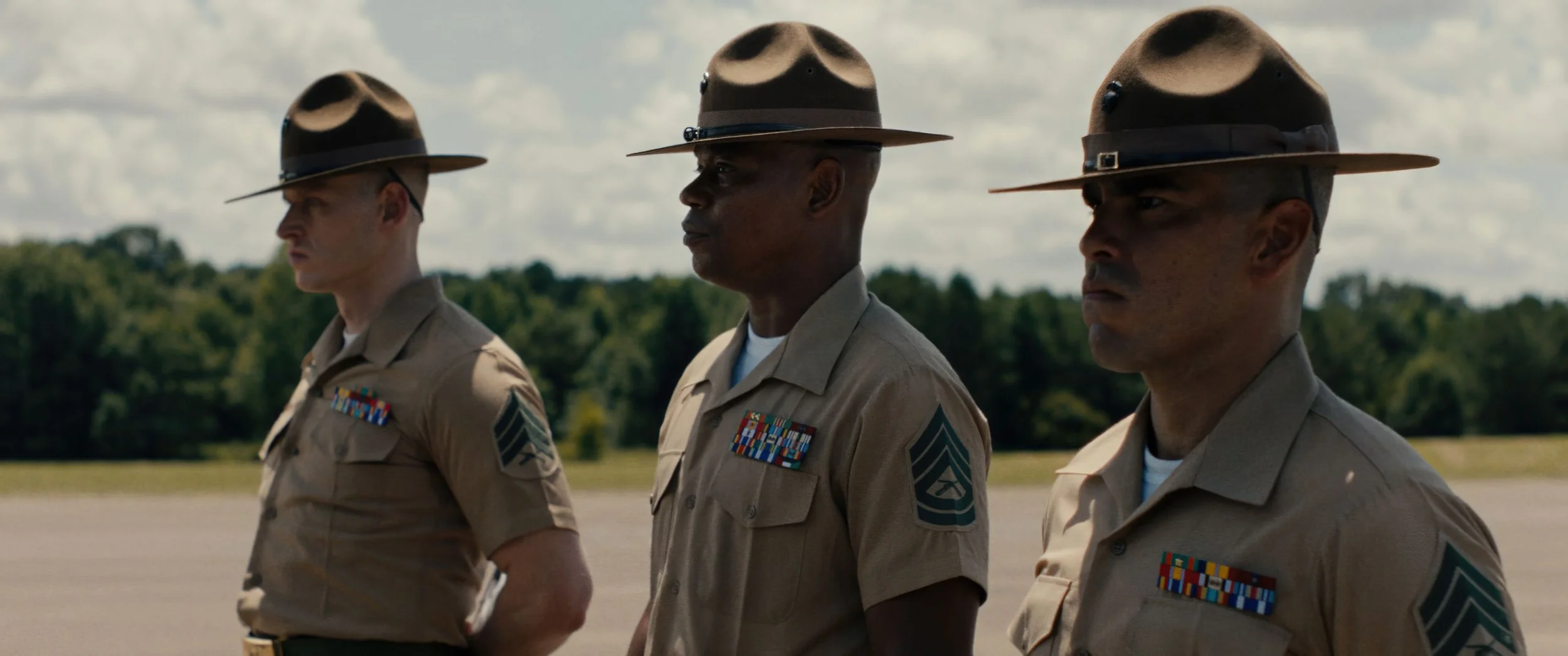"The Inspection" - Film Review
The Inspection details the Marine boot camp training of Ellis French (Jeremy Pope) in the early 2000s. His mother (Gabrielle Union) rejected him and he had no other options, so he decided to enlist. The road to graduating from boot camp is physically brutal and not made any easier by the intense and commanding leader (Bokeem Woodbine) of his platoon.
It’s obvious that The Inspection is painfully personal to writer/director Elegance Bratton. The script was inspired by his own life experience serving in the Marines during the Don’t Ask, Don’t Tell era. On the one hand, it feels wrong to critique something that was likely hugely cathartic for Bratton to make. On the other, the script is too clumsy to make any strong point about war, the militarization of the United States, and life as a queer kid in the time of the early aughts. After roughly ninety minutes of a non-stop barrage of bullying and hate speech, The Inspection tries to wrap itself up neatly with Ellis feeling at peace in the Marines, but the script never actually got there.
a24
Pope is one of the film’s few saving graces. It’s the sort of performance that will launch him into the stratosphere in the world of Hollywood after having already made a name for himself on Broadway. Without Pope’s heartbreakingly prideful performance, The Inspection would be forgettable. It is trapped in the genre conventions of any war flick about toxic masculinity, but, thankfully, Pope is able to bring something deeper to his one dimensional character.
The Inspection never feels like it is fully damning the brutal actions of its characters. Because of the film’s seemingly positive ending, the beatings Ellis endures and the verbal assaults could be seen as “necessary” to force him into becoming a “better man.” After he is rejected by his mother again, The Inspection ends with Ellis staring at himself proudly in the mirror while wearing his Marine uniform. It’s possible that Bratton gained a found family in the Marines and wanted to honor that in the film’s ending, but it would have made more of an impact if Ellis had made meaningful relationships with any of the other recruits. The only people who treat him with a shred of dignity are Rosales (Raúl Castillo), one of the drill sergeants, and fellow bullied recruit, Ismail (Eman Esfandi). Yet they do so only in privacy, so as not to be seen socializing with Ellis.
a24
If The Inspection had a more well-rounded script, the film could have exposed the broken system that forces people to enlist in the military. Homeless young people (people of color especially) and teenagers with no other options must make impossible decisions under the premise of getting a better life. Joining any branch of the military is easier than getting a higher education or well-paying job. “The streets were going to kill me anyway, but if I die in this uniform, I die a hero,” Ellis admits. He didn’t join because he genuinely wanted to. Ellis joined because he had accepted that there was no feasible future for him, so he might as well buy into the military propaganda of giving his life meaning through war.
As the film progresses, the audience is begging for The Inspection to challenge them on something. Anything. The film doesn’t need to be pro- or anti-military to be successful, but it does need to know what it wants to say. Perhaps too bogged down in trying to accurately represent his own experience, Bratton fails to say something larger about what he, and thousands of others, lived through. What’s left is a film that isn’t sure what it wants to say, so it says nothing at all.
Follow me on BlueSky, Instagram, Letterboxd, & YouTube. Check out Movies with My Dad, a new podcast recorded on the car ride home from the movies.


